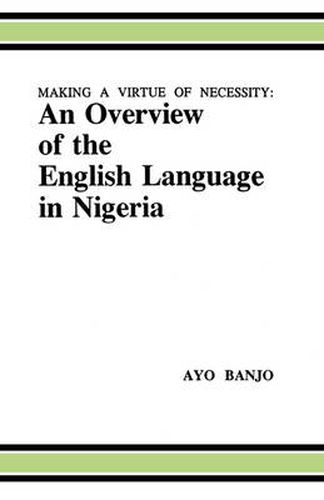Readings Newsletter
Become a Readings Member to make your shopping experience even easier.
Sign in or sign up for free!
You’re not far away from qualifying for FREE standard shipping within Australia
You’ve qualified for FREE standard shipping within Australia
The cart is loading…






This title is printed to order. This book may have been self-published. If so, we cannot guarantee the quality of the content. In the main most books will have gone through the editing process however some may not. We therefore suggest that you be aware of this before ordering this book. If in doubt check either the author or publisher’s details as we are unable to accept any returns unless they are faulty. Please contact us if you have any questions.
The author is a prominent linguistics scholar. The study of sociolinguistics of the English language in Nigeria has assumed great importance in Nigerian universities. Against the background of key works from 1971 to 1991, and the growing debate over an optimal language policy for Nigeria, he looks at the perspectives of an individual writer, to provide an overview of the language since its earliest contacts with what is now known as Nigeria. One important gap which he identifies is the paucity of illustrative data even from the three main Nigerian languages.
$9.00 standard shipping within Australia
FREE standard shipping within Australia for orders over $100.00
Express & International shipping calculated at checkout
This title is printed to order. This book may have been self-published. If so, we cannot guarantee the quality of the content. In the main most books will have gone through the editing process however some may not. We therefore suggest that you be aware of this before ordering this book. If in doubt check either the author or publisher’s details as we are unable to accept any returns unless they are faulty. Please contact us if you have any questions.
The author is a prominent linguistics scholar. The study of sociolinguistics of the English language in Nigeria has assumed great importance in Nigerian universities. Against the background of key works from 1971 to 1991, and the growing debate over an optimal language policy for Nigeria, he looks at the perspectives of an individual writer, to provide an overview of the language since its earliest contacts with what is now known as Nigeria. One important gap which he identifies is the paucity of illustrative data even from the three main Nigerian languages.